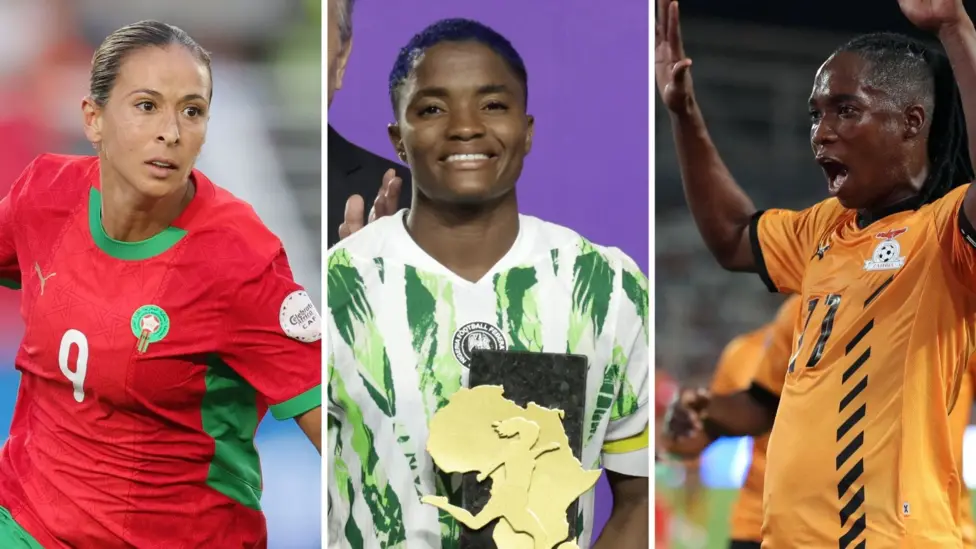Nigeria made history in Rabat on Saturday night, claiming a record-extending 10th Women’s Africa Cup of Nations (WAFCON) title in dramatic fashion. The Super Falcons came from two goals down at half-time to defeat hosts Morocco in a pulsating final, earning not only continental glory but a $1m prize after CAF boosted the tournament’s prize pool.
Captain Rasheedat Ajibade, who lifted the trophy and was later named Player of the Tournament, led a squad that had to overcome both fierce opponents and persistent institutional challenges. But beyond Nigeria’s heroics, WAFCON 2024 shed light on pressing issues still hindering the growth of women’s football in Africa.
Empty Seats and Scheduling Concerns
Despite the passionate home support for Morocco, whose matches saw packed crowds at the smaller Olympic Stadium, overall attendances were disappointing. The much larger Prince Moulay Abdellah Stadium — which previously hosted over 50,000 fans — was unavailable due to renovations for the 2025 men’s AFCON.
Games not involving the host nation drew sparse audiences, revealing a lack of promotion and minimal signage in the cities. Travel costs also restricted visiting support from other African nations. Moreover, the tournament’s timing clashed with the 2025 UEFA European Championship, reducing international media coverage.
CAF general secretary Veron Mosengo-Omba urged patience: “Europe took 25-30 years to reach this level. We need time, but we have the potential.”
Improved Competition on the Pitch
The football on show was more competitive than ever. Algeria advanced to the knockout stages for the first time without conceding, and Senegal took defending champions South Africa to penalties. Tanzania earned their first point in WAFCON history, holding South Africa in the group stage despite an 83-place gap in FIFA rankings.
However, CAF remains cautious about expanding the 12-team tournament until consistency is seen across all nations. Mosengo-Omba also stressed the need to reinforce domestic leagues and improve the Women’s Champions League, which remains an eight-team, two-week tournament.
Calls for Equality and Fair Treatment
Inequality between men’s and women’s football in Africa was again thrust into the spotlight. Nigeria’s players were moved after captain Ajibade criticised their accommodation, while both South Africa and DR Congo faced disputes over bonuses and allowances.
Despite a 45% prize pool increase, WAFCON 2024 still pales in comparison to the men’s AFCON. Ivory Coast earned $7m for winning the 2023 edition, while Nigeria’s men received $4m as runners-up. In contrast, Morocco, as women’s runners-up, took home just $500,000.
Former Super Falcons striker Desire Oparanozie was blunt: “The discrepancy is as big as the ocean. We’re winning more and still earning far less.”
Investment the Key to Progress
Morocco continues to lead the way in supporting women’s football. With heavy investment from King Mohammed VI, the Royal Moroccan Football Federation (RMFF) provides $500 monthly for each top-flight player, aiming to build the best women’s league on the continent.
However, most African countries lack such resources and depend on CAF and FIFA funds. Morocco’s support has yet to yield a major trophy, but their continued investment may eventually shift the balance.
CAF is now looking to secure commercial partnerships for the women’s game. Some sponsors of the men’s tournament have shown interest in expanding into WAFCON. Players like Ghana’s Chantelle Boye-Hlorkah say more visibility will bring better pay: “Football is a business. More fans, more broadcast views, more shirt sales — it all adds up.”
With the next WAFCON scheduled for March 2026, Morocco will once again host, giving African women’s football another shot at setting new standards — both on and off the pitch.



